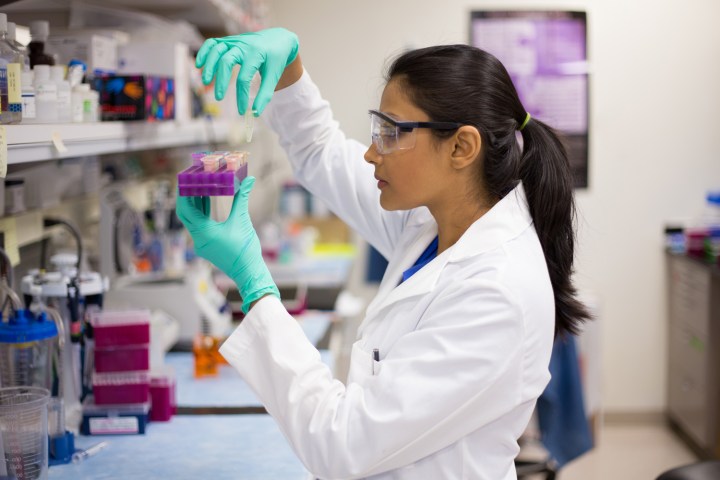
Well, not really — the hope is that one day, doctors will be able to convert a man’s stem cells into sperm cells, allowing him to pass his genetic material on to his progeny. In conducting their own tests, the Chinese team started with mouse embryonic stem cells that were “exposed to chemicals to nudge them toward becoming sperm,” which is to say, the cells were placed in a dish alongside testicle cells.
And despite the fact that these stem cells never evolved into mature sperm, they were still advanced enough to fertilize eggs. Of the 379 eggs scientists injected with the sperm, nine baby mice were born.
Of course, what works in mice is by no means guaranteed to work in humans, especially when it comes to reproduction. Indeed, Popular Science notes “there are differences at these early stages of egg and sperm development between mice and humans.”
But the team involved in the experiment tells the BBC that they’re happy with the preliminary results.
“All the offspring were healthy and fertile,” Professor Xiao-Yang Zhao, from the Chinese Academy of Sciences, told the British publication. Further, he noted that the work could serve as “inspiration” for additional research with humans to “solve the problem of sterility.” Still, he says, there are “ethical concerns” and “possible risks should be ruled out first.”
The scientific community, for its part, seems thrilled by the implications.
Professor Robin Lovell-Badge of the U.K.’s Francis Crick Institute lauded “an impressive amount of work” and “exciting” results which may be “fantastically useful for basic research.”


